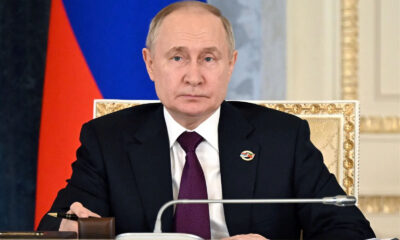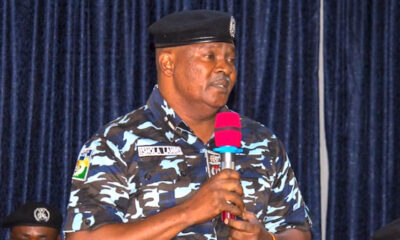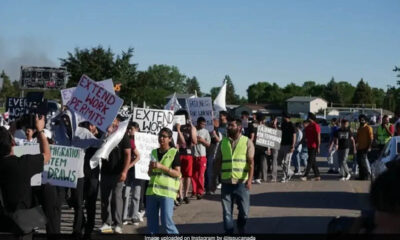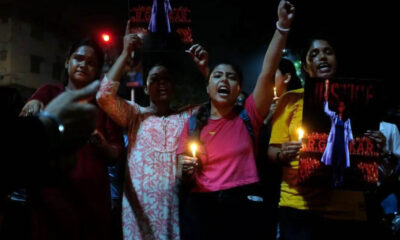News
Northern elders, economists advise Tinubu on how to end protests

Northern elders, economists advise Tinubu on how to end protests
Economic and financial experts have listed what the Bola Tinubu administration should do immediately to bring to an end the on-going nationwide protests.
In separate chats with Saturday Sun, the experts recommended that the government subsidise cost of food items, reduce the cost of governance, and ensure greater transparency in the distribution of palliatives, among other measures, to alleviate citizens’ concerns and prevent further damage.
The 10-day planned protest which began on Thursday, primarily against rising cost of living and hunger, has escalated to violence, destruction of property and loss of lives in many parts of the nation.
An economist and development expert, Aliyu ilias, said: “I think first and foremost, President Bola Tinubu should address the country. He should come up with a template of what he wants to achieve in the next one year, especially the provision of CNG. Most people are shouting hunger. It is because of the cost of transportation. If he cannot bring back fuel subsidies, he must make sure that a workable template for CNG buses is in place and all the state governors must come out and explain what they will use the money from federal government allocations to do.
“Tinubu should also rejig his cabinet by reappointing a minister of Humanitarian Affairs and also removing ministers that are not functioning well. There must be a correct template to serve Nigeria. If not, this will turn into a revolution and there is nothing he would be able to do about it.”
Prof. Femi Saibu, a lecturer in the Department of Economics at the University of Lagos, said that it is not enough for the government to simply provide palliatives; it must also ensure that these resources reach those who genuinely need them.
Saibu pointed out the existing gap between government expenditures and their actual impact on the populace, noting that it is important to flush out political intermediaries who continue to hijack public interventions for their own gain.
READ ALSO:
- Saraki replies Tambuwal: You never informed me of your withdrawal for Atiku in PDP primary
- Soyinka worries about festering corruption in Nigeria, offers solution
- Anxiety in Kogi over kidnap of local govt chairman
According to him, “It is like the more the government spends, the more the people complain of poverty or hardship. So it means the middlemen between the masses and the government are actually not allowing those things to trickle down. The Federal Government pays state governments billions of naira to alleviate the sufferings of people. Most of these people hold on to these monies while people are feeling pains and the government is having empty purses.”
He further advocated for more investment in basic infrastructure that will help improve the lives of citizens.
“Rather than giving cash to people, the government should provide basic things that people need. For instance, the government should spend heavily on health facilities, spend heavily on education, and invest directly in agriculture.
“Today the government said it has paid a lot of money to people as palliatives, but we have not seen anybody claiming they got the money. They said they gave each state several millions of bags of rice. Have you seen the bag of rice in anybody’s house?”
The economist advised the federal government to devise a new means of doing things. He said the federal government should use leaders of local communities to reach the people instead of state governors. On his part, Economic Consultant at Dynamo Consulting, Brume Nikoro asked elected leaders to cut down government wastage. He recommended empowering small scale Industries and start-ups with interest free loans and encouraging the Agricultural and Technology industries with programmes and initiatives.
In his view, lawyer and rights activist, Kabiru Akingboolu said the police authorities should ensure their personnel handle protests with civility.
He emphasized that the current widespread hardship across the country calls for a government response that goes beyond mere rhetoric.
According to Akingboolu, the government must address the nation with concrete actions to alleviate economic difficulties and prevent further unrest. He said government should also invest significantly in agriculture to boost food production. He also cautioned that prolonged protests could escalate, referencing the #EndSARS movement as a lesson in managing civil unrest.
In support, lawyer and rights activist Maduka Onwukeme added, “The government should address the protesters’ key concerns, particularly the issues of widespread hunger and inflation. Meeting these demands could lead many genuine protesters to leave the streets. Hunger fuels unrest, and negotiating with a hungry population is impractical. Effective measures to tackle these issues are crucial.”
Northern elders in a press statement signed by Prof Usman Yusuf, Hajia Najatu Muhammad, Mallam Salihu Lukman; and Dr. Umar Ardo, said the government should be pragmatic in its approach to the resolution of the crisis to amicably resolve and mitigate the risks associated with mass protests.
The elders asked the government to identify and directly engage with the youth leaders and protesters to understand and address their grievances.
They told the government to sincerely address the demands of the protesters by implementing meaningful reforms, demonstrating goodwill and a commitment to change by investing in youth development programmes, education, innovation, entrepreneurship initiatives,as well as implement policies that would enhance general economic development of the country.
They further urged the government to improve governance by enhancing transparency, accountability, and inclusivity in governance against personalised leadership, tackling corruption and ensuring equal opportunities for all citizens.
Political and economic analyst, Mustapha Hussain Olarewaju noted that while the government claims to have removed fuel subsidies, the estimated landing cost of petrol exceeds N1, 000, indicating that subsidies persist under different names.
“The floating exchange rate is driving costs higher, leading to widespread inflation,” Olarewaju stated.
He called for stabilization of fuel prices to alleviate the financial burden on citizens, as the current situation reflects a cost-push inflation scenario rather than a demand-driven one.
Olarewaju, criticised the Central Bank of Nigeria’s (CBN) recent monetary policies, particularly the increase of the monetary policy rate (MPR) to 26.25%. He argued that this approach targets demand reduction rather than addressing the root causes of inflation.
Olarewaju emphasised that to combat cost-push inflation effectively, the government should increase expenditure to stimulate productive activities instead of tightening monetary policy.
Northern elders, economists advise Tinubu on how to end protests
News
Yahaya Bello reports to EFCC office with lawyers

Yahaya Bello reports to EFCC office with lawyers
A former Governor of Kogi State, Yahaya Bello, on Tuesday visited the Economic and Financial Crimes Commission (EFCC) to honour another invitation extended to him over alleged misappropriation of funds.
Bello went to the anti-graft office with his lawyers in the morning.
The ex-Kogi governor reportedly drove himself to the EFCC’s office in a black Toyota Hilux van with some lawyers.
He was said to have been taken by some operatives of the agency and are currently being grilled.
This is coming after the Supreme Court judgment which dismissed a suit brought by some state governments challenging the constitutionality of the agency.
The EFCC at the last hearing on November 14, sought the adjournment till November 27 in the fresh case it instituted against Bello.
It stated that the 30-day window was still running for the summons earlier issued.
News
Just in: Ebonyi governor suspends two commissioners, Perm Sec for misconduct
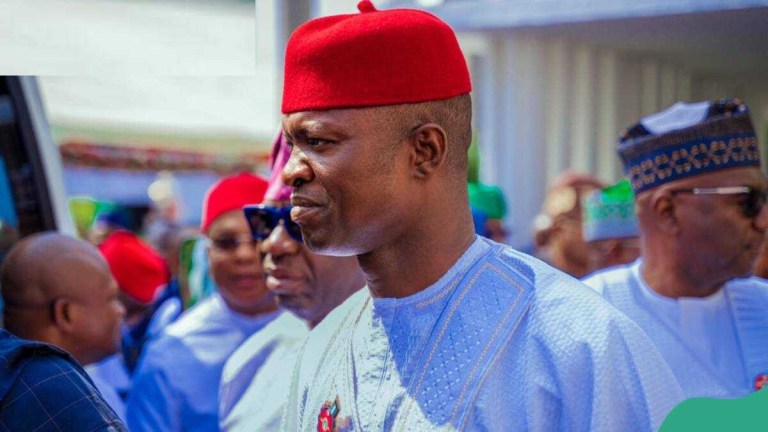
Just in: Ebonyi governor suspends two commissioners, Perm Sec for misconduct
Ebonyi State Governor Francis Nwifuru has announced the immediate suspension of two commissioners with a permanent secretary among others for gross misconduct.
Those suspended are the Commissioner for Housing and Urban Development Francis Ori, and the Commissioner for Health, Moses Ekuma, with the Permanent Secretary of the Ministry of Health.
The suspension followed an incident on Saturday night, when the governor reportedly visited the Ministry of Health’s premises and was said to have found six officials diverting government materials.
Others suspended for three months are the Executive Secretaries of the State Primary Healthcare Development Agency and the Ebonyi State Health Insurance Agency
The suspension order was announced by the state Commissioner for Information, Jude Okpor, who cited alleged misconduct and dereliction of duties as the reasons for the disciplinary actions.
Okpor made the disclosure on Tuesday during a press briefing on the outcomes of the State Executive Council meeting held on Monday at the New Government House in Abakaliki, the state capital.
“Following cases of gross misconduct and dereliction of duties by some government officials and matters related thereto, the Chairman of Council directed the indefinite suspension of the Honourable Commissioner for Housing and Urban Development and three months suspension of the Honourable Commissioner for Health, respectively
“In view of the development, the Special Assistant to the Governor on Primary Health was directed to take charge of the ministry in the absence of the suspended commissioner.
Governor Nwifuru directed the suspended government officials to hand over all government properties in their possession including vehicles to the Secretary to the State Government.
News
Why we’re borrowing despite surplus revenues – FG
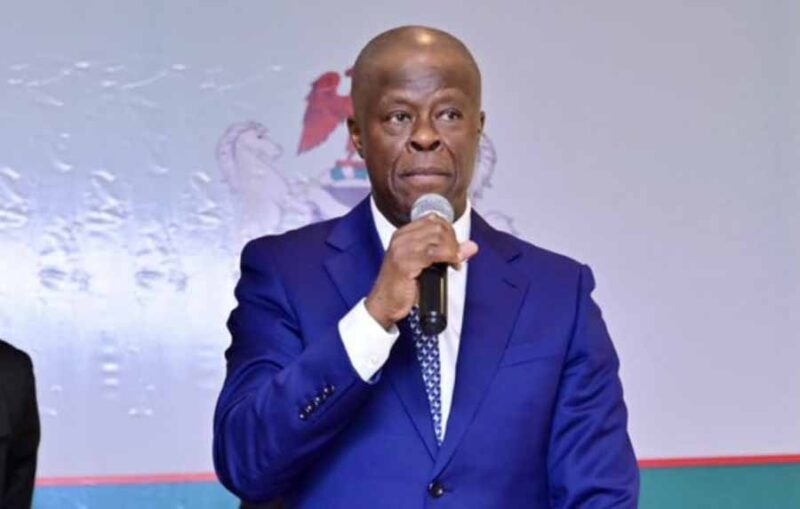
Why we’re borrowing despite surplus revenues – FG
The Federal Government has defended its decision to borrow to address budget deficits, despite surpassing revenue targets in 2024.
Finance Minister Wale Edun and Budget Minister Atiku Bagudu clarified this position during a session with the National Assembly’s Joint Committee on Finance, Budget, and National Planning. The meeting focused on the 2025–2027 Medium-Term Expenditure Framework (MTEF) and Fiscal Strategy Paper (FSP).
Last week, the National Assembly approved President Bola Tinubu’s $2.2 billion loan request to fund the N9.7 trillion deficit in the 2024 budget partially.
During the session, key agency heads, including Nigerian National Petroleum Company Limited (NNPCL) CEO Mele Kyari, Customs Comptroller-General Bashir Adeniyi, and Federal Inland Revenue Service (FIRS) Chairman Zacch Adedeji, presented their revenue reports.
The agencies reported exceeding their 2024 targets.
- Customs Service: Generated ₦5.352 trillion by September 30, surpassing its ₦5.09 trillion target for the year. For 2025, the agency projects ₦6.3 trillion, with a 10% increase planned for 2026.
- NNPCL: Achieved ₦13.1 trillion in revenue, exceeding the ₦12.3 trillion projection for 2024. Kyari announced a ₦23.7 trillion revenue target for 2025.
READ ALSO:
- Mixed reactions trail moves to privatise PH, Warri, Kaduna refineries
- Ronaldo’s brace propels Al Nassr toward AFC champions league quarters
- Nigeria would have been better under Peter Obi, too much nepotism under Tinubu – Senator Abaribe
- FIRS: Surpassed multiple tax collection goals, including ₦5.7 trillion from company income tax against a ₦4 trillion target. Education tax collections also exceeded expectations, reaching ₦1.5 trillion compared to a ₦70 billion target.
Overall, ₦18.5 trillion of the ₦19.4 trillion 2024 revenue target had been achieved by September, indicating the goal will be exceeded by year-end.
Despite these surpluses, the government insists borrowing remains essential to cover budget gaps and support vulnerable populations.
Bagudu explained, “Even with agencies exceeding revenue targets, borrowing is necessary to address deficits and boost productivity, particularly for the poorest. This aligns with Agenda 2050, which aims for a GDP per capita of $33,000.”
Edun also reiterated that loans were critical for adequately funding the budget.
The committee, led by Senator Sani Musa, questioned the rationale behind the borrowing and demanded further transparency. The Immigration Service was specifically asked to provide documents regarding an “unacceptable PPP arrangement” before the end of the week.
The session underscored the government’s balancing act between increased revenues and fiscal challenges requiring external borrowing.
Why we’re borrowing despite surplus revenues – FG
-

 metro19 hours ago
metro19 hours agoBREAKING: Port Harcourt refinery begins operation
-

 Business3 days ago
Business3 days agoJust in: Dangote refinery reduces petrol price for marketers
-

 metro2 days ago
metro2 days ago40-foot container falls on car in Lagos
-
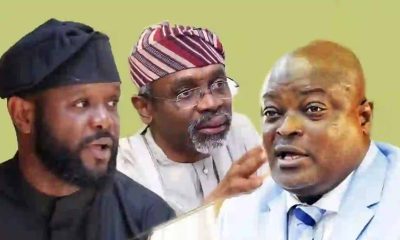
 Politics3 days ago
Politics3 days ago2027: Lagos Speaker, Obasa joins gov race, may battle Seyi Tinubu, others
-

 Politics2 days ago
Politics2 days agoLagos 2027: Seyi Tinubu campaign team releases his life documentary
-

 International2 days ago
International2 days agoTrump to sack 15,000 transgender officers from U.S. military: Report
-

 Entertainment1 day ago
Entertainment1 day agoPolygamy best form of marriage for Africa – Okey Bakassi
-

 metro2 days ago
metro2 days agoPolicewoman dismissed in Edo threatens to kill children, commit suicide



